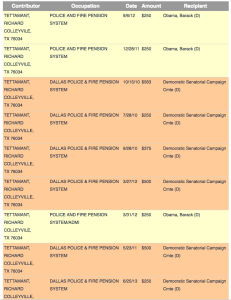In case you missed it, a lawsuit attempting to block the implementation of campus carry has been rejected by a federal judge:
A federal judge has denied three University of Texas at Austin professors’ initial attempt to keep guns out of their classrooms under the state’s campus carry law.
U.S. District Judge Lee Yeakel ruled that the professors, who had sought a preliminary injunction to block implementation of the law, had failed to establish their likelihood for success. UT students resume classes on Wednesday, and the professors’ case will continue to work its way through the court while the law remains in effect.
The professors, Jennifer Lynn Glass, Lisa Moore and Mia Carter, filed their lawsuit against the university and the attorney general’s office. In the suit, the professors said the possibility of guns on campus could stifle class discussion in their courses, which touch on emotional issues like gay rights and abortion. They argued that was a violation of students’ First Amendment right to free speech.
From the text of the decision:
The court concludes at this stage in the proceedings that requiring public universities to allow licensed individuals to carry concealed handguns is a basis for the Campus Carry Law that bears a debatably rational relationship to the conceivable legitimate governmental end of enabling individuals to defend themselves.
Also:
It appears to the court that neither the Texas Legislature nor the Board of Regents has overstepped its legitimate power to determine where a licensed individual may carry a concealed handgun in an academic setting. The court concludes that Plaintiffs have failed to establish a substantial likelihood of success on their equal-protection claim under the Fourteenth Amendment.
IV. CONCLUSION
Because Plaintiffs at this time have failed to establish a substantial likelihood of ultimate success on the merits of their asserted claims, their request for immediate relief must fail. The court therefore need not and does not reach the remaining requirements for granting a preliminary injunction. Bluefleld, 577 F.3d at 253 (“[A] preliminary injunction is an extraordinary remedy which should not be granted unless the party seeking it has ‘clearly carried the burden of persuasion’ on all four requirements.”). Accordingly,IT IS ORDERED that Plaintiffs’ Application for Preliminary Injunction (Clerk’s Doc. No. 20) is DENIED.
Score one for civil rights and the rule of law over irrational hopolophobia.
